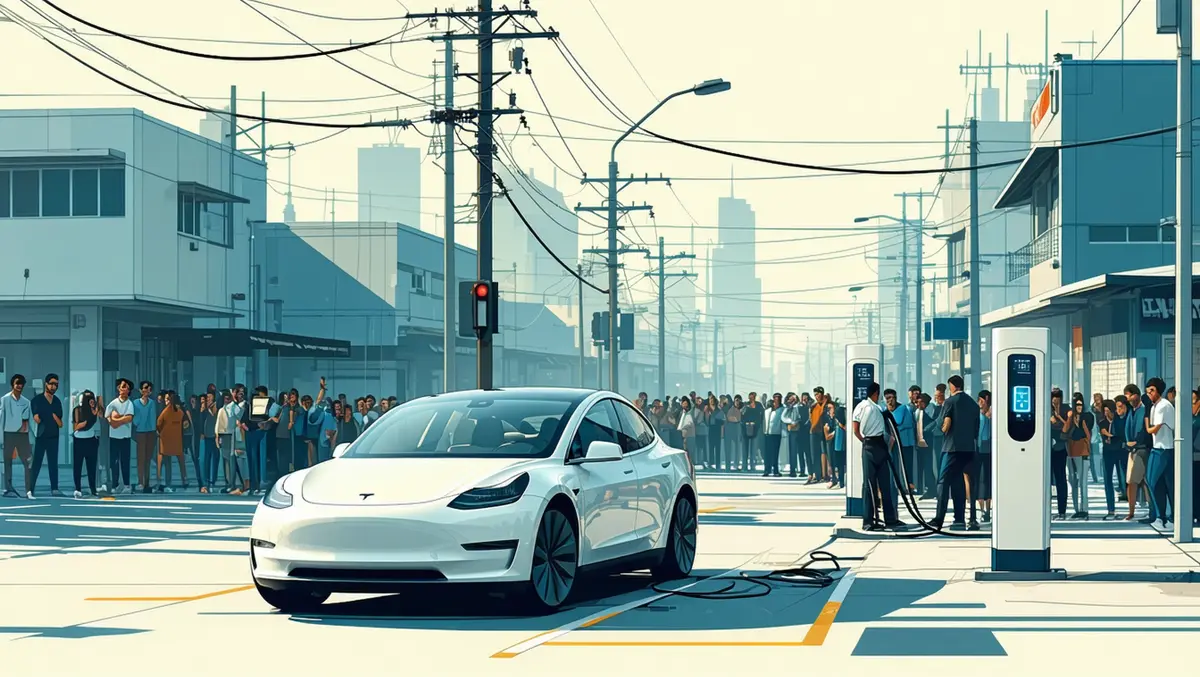
Charging infrastructure a major hurdle for EV growth
Tata Consultancy Services has released its 2025 eMobility Study, shedding light on the evolving dynamics of the electric vehicle (EV) market.
According to the study, 64% of consumers globally are likely or very likely to consider purchasing an electric vehicle as their next car. This interest from consumers contrasts with a more cautious outlook from EV manufacturers, as 54% of them expect a slowdown in market demand. Of these, 28% foresee this slowdown within the next two years, while 26% anticipate longer-term cooling beyond two years.
The study highlights a critical issue in the form of charging infrastructure with 74% of manufacturers identifying it as the biggest hurdle to EV market growth. Anupam Singhal, President of Manufacturing at TCS, commented, "The electric vehicle industry is at a defining crossroads, navigating the complexities of scaling and transformation. While nearly two-thirds of consumers are open to choosing electric for their next vehicle, manufacturers face challenges like advancing battery technology, complex vehicle designs, and production economics."
The survey results further reveal that range anxiety continues to be a prevalent concern, affecting 70% of consumers worldwide. Despite this, significant technological advancements in battery technology are not anticipated by 70% of EV manufacturers for at least another two years.
In terms of geographical market differences, 72% of American consumers are inclined to purchase an EV as their next car, compared to just 31% in Japan. Meanwhile, Chinese companies lead in EV fleet adoption, with 49% implementing such strategies compared to 27% of enterprises in the US.
Singhal elaborated on the industry's challenges and TCS's role, stating, "At TCS, our Future-Ready Mobility vision focuses on creating an interconnected ecosystem powered by AI and Gen AI to drive smarter decision-making, enhanced customer experiences, and deliver scalable, sustainable solutions. By addressing these critical challenges, we are accelerating the global shift toward electrified and sustainable transportation."
In the area of EV infrastructure, the study found that only 52% of EV charging companies and 56% of fleet adopters are satisfied with their respective national governments' policies. Moreover, 72% of EV charging infrastructure operators foresee significant industry consolidation due to financial viability and scaling hurdles.
The research also underscores the potential of hybrid vehicles with 84% of EV influencers expecting their growth in the next one-to-three years. Investments into technologies such as battery advancements remain key, with 55% of manufacturers prioritising research and development in this area.
Meanwhile, regulatory frameworks appear to offer limited encouragement according to 28% of EV manufacturers, who believe that government policies will significantly boost industry growth in the near future. Only 38% of charging companies find current government collaborations effective.
Other concerns for manufacturers include raw material availability, which affects 45% of them, and battery technology improvements, cited by 90% as critical to impact EV design and performance shortly.
The Future-Ready eMobility Study by TCS surveyed 1,308 respondents from key markets, including North America, the UK and Ireland, Continental Europe, and Asia-Pacific. These respondents belong to the various integral segments within the EV ecosystem: manufacturers, infrastructure builders, fleet adopters, and policymakers.


